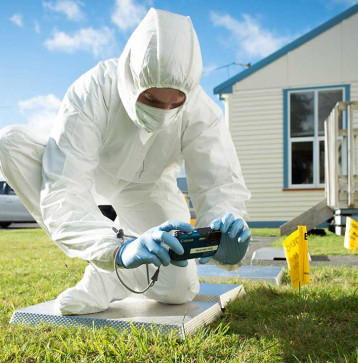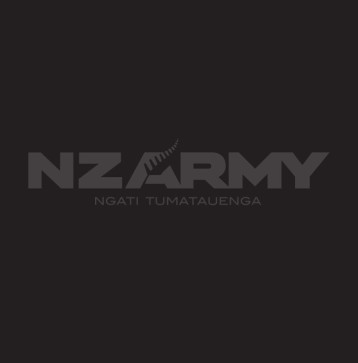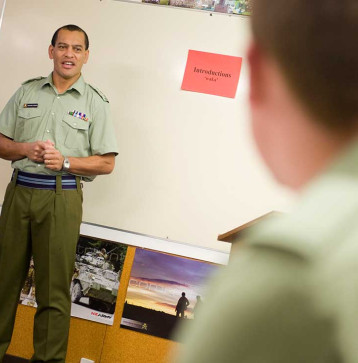
Emergency Responder (Firefighter)
Skip to section:
About the role Career progression and training Salary and benefits Entry requirementsKeeping personnel and equipment safe, you will be trained to assess, control and extinguish fires also providing first aid as a Co-Responder as well as extracting casualties at vehicle accidents both domestically and on operations.
- ServiceArmy
- SpecialisationEngineering and Technical Trades
-
Starting Trade Training$64,177
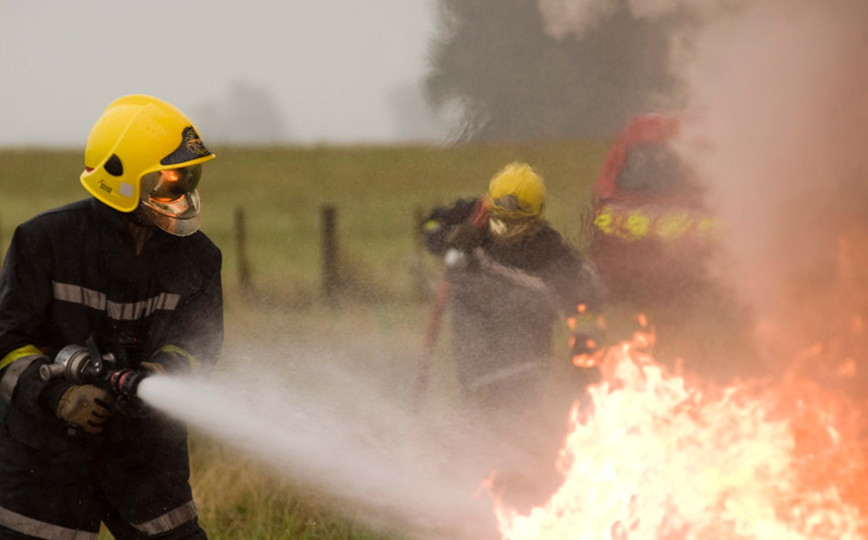
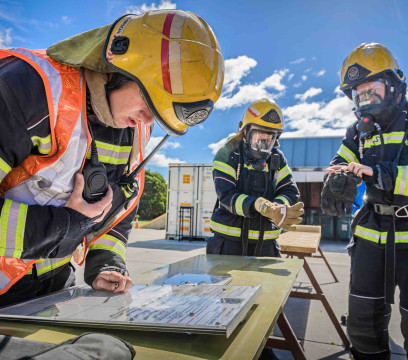
About the role
As an Emergency Responder, your job is to protect Army and Civilian personnel and equipment from fire and fire hazards. Army Emergency Responders are provided with world class equipment and trained to the highest standard of fire fighting techniques responding to emergencies within the camp and the local area when needed.
Job on base
A typical shift for an Army Emergency Responder might involve trade training, fire safety promotion, physical training, as well as the servicing and maintenance of equipment. When on duty, you could be called out to an emergency at any moment; Army Emergency Responders are used as first responders to fires or accidents on camp and within the local area. You will also have the opportunity to compete in UFBA events such as the Combat Challenge and Road Crash Rescue.
Job on deployment
In the Field when deployed as an Emergency Responder you will monitor and extinguish any fires that may start during live ammunition firing exercises. The Emergency Response Squadron frequently deploys to assist in regional and national emergencies such as in 2017 Port Hills fire and in 2019 the Nelson fires.
Emergency Responders may also be deployed in support of Fire and Emergency New Zealand (FENZ) in international emergencies such as the USA, Canada 2018 and helping out in Australia annually since 2008.
Career progression and training
Career Progression
Basic Training
Job Training
Ongoing Training
As your career develops, you will gain the opportunity to receive heavy vehicle training; enabling you to operate the Army’s latest fire fighting assets.
Upon successful enlistment into the Army you’ll be posted to Waiouru Army base. Here you will do 16 weeks of basic military training to find out if you’ve got what it takes to be in the Army, and learn various subjects including:
- Organisation and Administration
- Army Customs and Protocol
- Drill and Parades
- Military Field Skills and Weapon Training
- First Aid
- Physical Fitness
BASIC COMBAT ENGINEER COURSE
This is an eight week course held at the School of Military Engineering, Linton Military Camp. This is the first course conducted for most trades within the Royal New Zealand Engineers. It introduces you to the combat side of being an engineer before you undertake your specific trade. The course covers the basics of field engineering including bridging, water supply, explosives, field defences, obstacles, booby traps, boating and other subjects. After the course, you will have a good understanding of field engineering and also be qualified as an Army (explosives) Demolition Handler.
BASIC FIRE COURSE
This is a 13-week fire fighting Joint Service course, Army and Air Force, conducted at Linton Military Camp. This course covers all aspects of fire fighting including domestic and rural fire fighting as well as motor vehicle accidents. You will also be trained by St Johns to become a Co-Responder for medical incidents. It is a combination of theory and practical work, where you will learn to use some of the most up to date fire fighting and rescue equipment in the world.
You will be trained how to assess, control and extinguish fires. You will also learn how to correctly respond and aid at motor vehicle accidents. You will also learn how to safely control and extinguish a fire and rescue casualties inside any of the in service RNZAF aircraft.
Ongoing training is conducted at your unit and at the Joint Services Fire School, with a mix of trade and personal development courses. The Emergency Response trade also sends personnel to attend selected FENZ courses. This ensures that our Emergency Responders are trained in methods and techniques that are of the highest standard and the same level to our civilian counterparts.
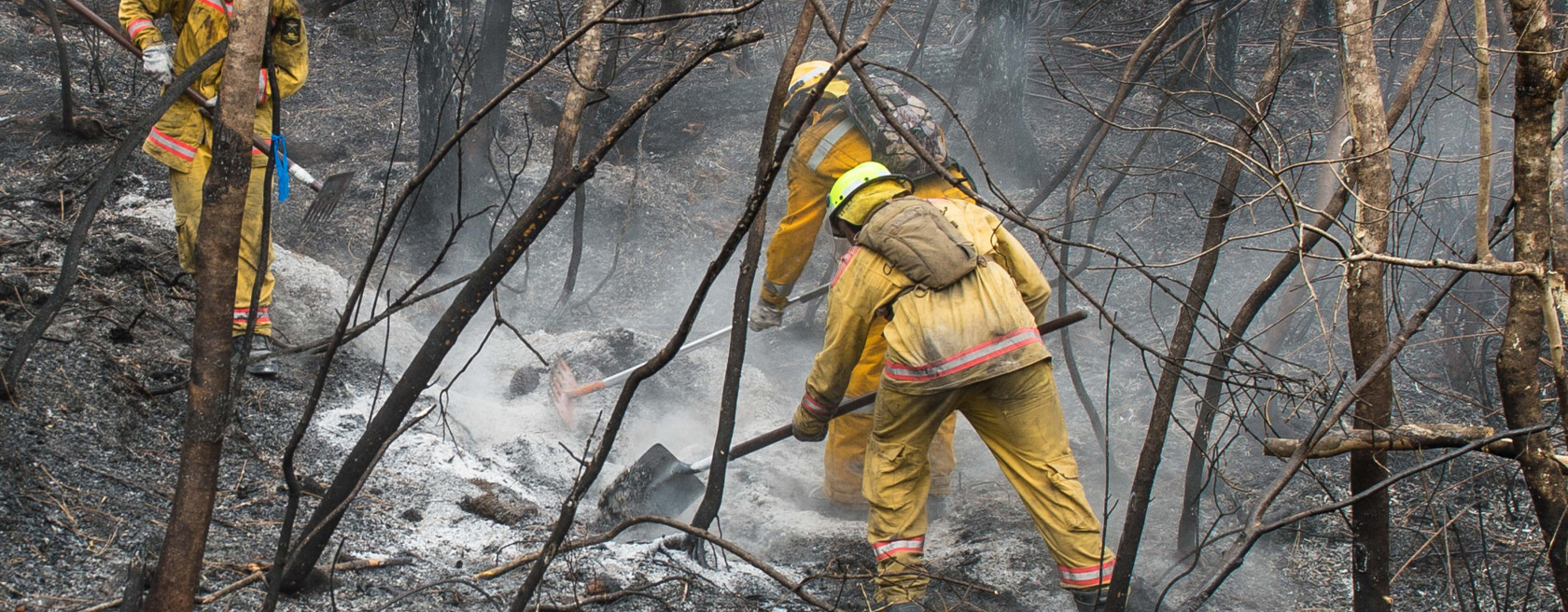
Salary and benefits
Careers in the Army are well-rewarded, diverse and exciting. As you become more experienced and move up through the ranks, gaining additional skills and qualifications, your salary will rise accordingly.
$50,597
Under Initial Training
$64,177
Starting Trade Training
$122,331
Future Potential Earnings
Figures updated on July 1st 2023
Benefits and allowances
Earn a competitive salary while training or learning your trade, along with additional allowances for time spent in the field, at sea, overseas, or deployed on operations.
In addition to salary and allowances, other benefits of joining the New Zealand Defence Force include:
Access to your Service marae or tūrangawaewae
Sponsored tertiary study programmes at all levels
Free access to gyms and swimming pools on camp and bases
Opportunities to travel
Free and subsidised medical and dental care
Subsidised food and accommodation on camps and bases
Free and subsidised insurance cover
Help to buy a home and save for retirement
Entry requirements
Basics
Education
Fitness and Medical
Citizenship
Period of Service
- You must be at least 17 years of age
- Meet the citizenship and security requirements to gain CV security clearance for this trade
- A class 1 restricted driving licence is required
3 years secondary school.
Note, that qualifications may be used to assess trade suitability.
- You must be medically fit for service.
- Colour perception restrictions may apply.
There are strict citizenship and security requirements to gain the required CV security clearance for this trade.
Find out if you’re eligible here.
There may be a return of service period for this trade.
Please contact our 0800 number or talk to your Candidate Experience Facilitator for more information.
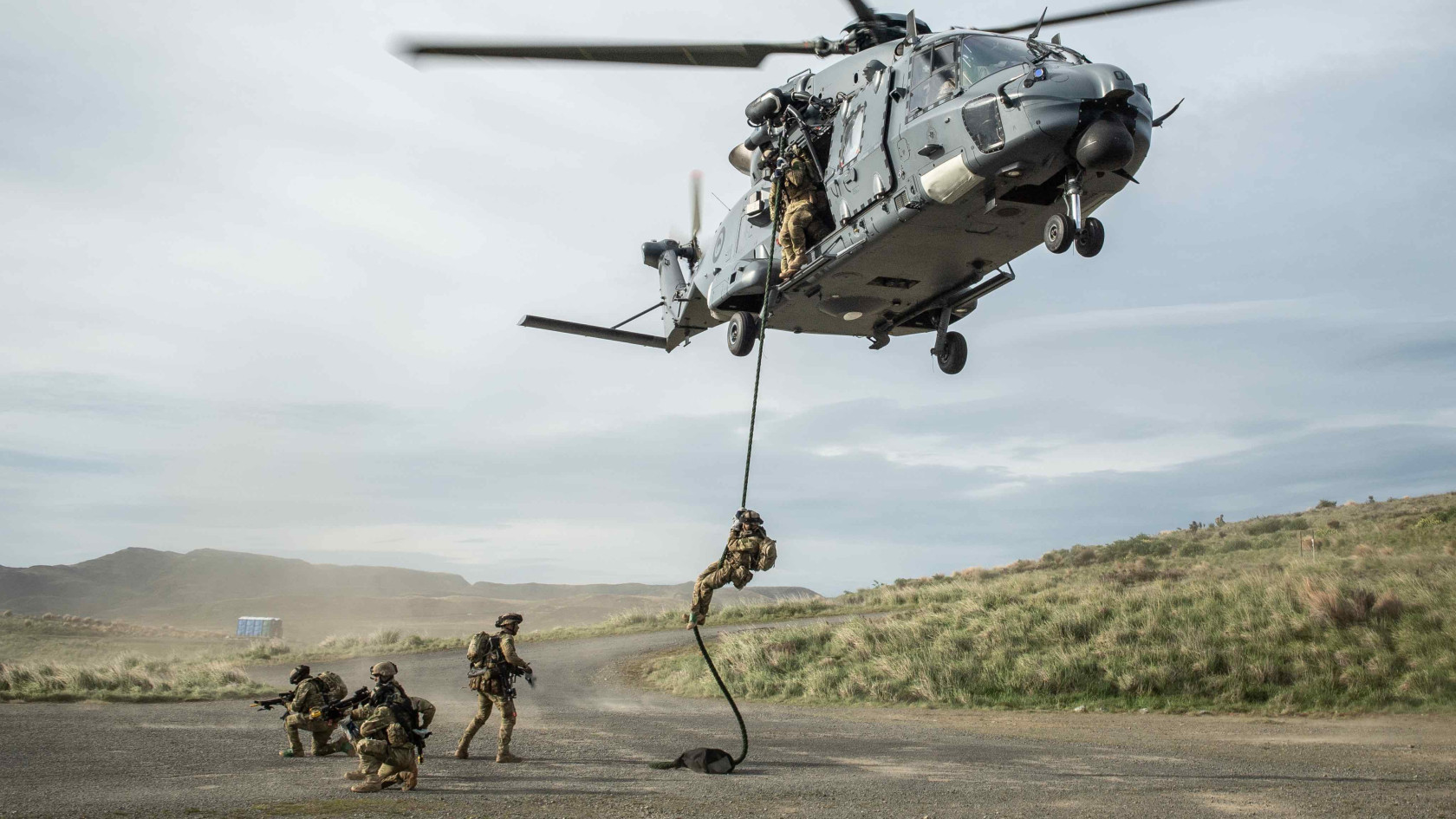
Ready to start your Army career?
Other jobs you might like
You can also browse jobs by specialisation to narrow down your search.
